Tanya Marlow is another Mudroom and SheLoves contributor, and she writes bracingly about suffering, theology, and faith. She’s also bedridden most of the time. I’m grateful for her voice, and her experience, because she’s both honest about how sucky her disease is, and also fiercely wise about what God teaches her through it. She makes me braver to admit my own weakness, instead of trying to pretend it’s not there. I’m so honored to have her here today.
So you suffer from myalgic encephalomyelitis (ME). Can explain a bit about the disease?
Even as recently as 2006, I was a runner, notching up five miles runs, three times a week. Now I can only walk a few metres per day. I was formerly a busy Christian minister, but now I am housebound, only able to leave the house once a fortnight or so, in a wheelchair, for a couple of hours. I’m in bed about 21 hours a day.
This was all the fault of M.E. – Myalgic Encephalomyelitis, an autoimmune neurological illness. It’s like having a faulty phone battery that loses its charge quickly and never fully recharges. Exercise and over-exertion, rather than strengthening the system, as it does for most people, weakens the body further. M.E. is a multi-system disease, and for me the symptoms include pain, sensitivity to noise and light, inability to regulate my temperature, weak immune system, neuro-cognitive impairments, tachycardia, breathlessness, fatigue, extreme muscle weakness, mobility problems, dizziness and vertigo.
A note on the name – M.E. is not well known in the US because in the 1980s a group of scientists decided to rename the illness ‘Chronic Fatigue Syndrome’ and redefine the illness to make ongoing fatigue the central symptom. Unfortunately, this had the result of trivialising the illness (‘you have CFS? I think I have that – I feel tired all the time too’) so most patients prefer the original name that Dr Melvin Ramsay came up with, Myalgic (painful) Encephalomyelitis (inflammation of the brain and nerves). More recently the IOM have suggested a new name: Systemic Exertion Intolerance Disease (SEID), so others may know it as that, too.
You wrote a post about needing to be carried sometimes—your husband had to carry you up and down your stairs, and people have had to lift you up in church, very literally. What has the practice of being physically weakened done to your faith—for better or for worse?
In 2010, I gave birth to a much-loved baby boy. Unfortunately, the exertion of labour worsened my M.E., and I awoke the next day with a new baby and a new disability. Overnight, I had become housebound.
During the last five years, I’ve discovered that all the ways I formerly connected with God—intellectual study and Bible teaching, communal worship, Bible studies with friends—disappeared. Formerly, I had taught apologetics—finding intellectually rigorous answers to questions like the existence of suffering. Now, I was no longer talking about the issue of suffering, I was eating it.
There is a much-beloved narrative in Christian circles that if you undergo suffering, you have a heightened sense of the presence of God. I did not find this to be the case. For a long time, there was a wilderness while I fought to keep my head above water physically and spiritually. Blogging helped me scratch out a still-forming theology, and the blogosphere gave me a sense of community and connection with other Christians. I found other, longer paths back to God—things like liturgy; quieter Christian music; the books of Job and Ruth; other Christians’ stories.
My book, Coming Back to God When You Feel Empty, is an intertwining of my story with the biblical book of Ruth, because it was one of those paths that led me back to God. I wrote it for others who were feeling empty after a period of suffering, and questioning where God was. I found I was drawn to the bitter and confused character of Naomi, and found in the text the fingerprints of God upon her life – and mine.
What are we missing of God, of the world, or of our selves when we’ve not experienced or avoid confronting physical suffering?
What are we missing of God? That it is a gift to know a suffering God; one who has known what it is to be in physical pain, struggling to breathe; a God who was wept. There is no other worldview or religion that honours suffering in this way.
What are we missing of ourselves and the world? That we are bodies, as well as minds. We are all made of dust. It is tempting, especially if we are rich westerners, to tell ourselves the story that Hollywood tells us: that we are beautiful, young, and immortal, and we can do anything we want. This is not true. We are all limited, in various ways, because we are not God. Disability heightens this awareness, but it is true for everyone.
What gifts has ME given you? (And if this is too much of a “wrap it up in a pretty bow so we all feel comfortable” question, feel free to be really honest about how it’s not a gift.)
Other disabled people who I greatly respect embrace their disability as part of their identity, and would not exchange it for their former life, because of the things they’ve learnt through it. But I always get a little nervous at these kinds of questions, because if I had a choice, I’d happily exchange the gifts of M.E. to be able to play in the park with my son. Suffering is suffering, and it’s hard, and it’s not a gift in itself.
But, you’re right to say there are gifts that have come with it. One has been the ability to fight perfectionism, tooth and nail. I can’t do most of the things I want, so I need to say no to a whole bunch of things. Before I had severe M.E., I was always very bad at listening to my body, resting, and saying no to others’ requests and listening to my body. Now I’m only medium-bad at those things. That’s a big change, and it’s M.E. that has forced me to prioritise in this way.
Another gift is a renewed appreciation of the natural world. I only leave the house occasionally, so I feast on the sights, sounds and smells when I do. Another is creativity, and finding myself able to write. Getting to know an international cohort of talented friends (such as your very good self) through blogging has been an immense privilege, and I would never have discovered these people if I weren’t housebound.
You started an advocacy organization to ad the deep cuts in disability payments in Britain that the now ruling party was proposing before the election. But you told me you had to quit because it swallowed you up. That sounds very familiar to me. What does it mean when we’re led to start something and led to quit it? What the hell is God doing with that?
Ha! Good question. I asked myself that very question several times…I would love to be the messiah of disability rights in Britain, but I’m not, and it’s good for me to remember that. We don’t have to save the world in order to make a difference. I spoke, and I got others to speak. I intended to speak for longer, and louder—and so I was disappointed when my health prevented me. Ecclesiastes says there is a time to speak, and a time to be silent. I always imagine that we’re in charge of deciding when to speak, and when to be silent, but sometimes those things are decided for us.
Whenever I’m feeling the sense of shame of not achieving as much as I would have liked, I remind myself that if something is worth doing, it is worth doing badly. Change often comes through lots of people doing small things imperfectly.
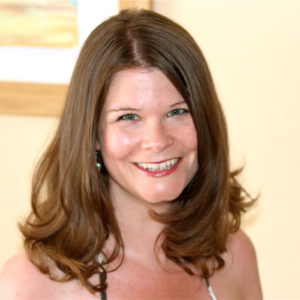 Tanya Marlow was in Christian ministry for a decade and a lecturer in Biblical Theology, until she got sick, and became a writer. Her worst habits include laughing at her own jokes and singing songs without knowing the lyrics. She writes honestly at Thorns and Gold on the Bible, suffering and the messy edges of life. She is the author of Coming Back to God When You Feel Empty, which you can get for free here.
Tanya Marlow was in Christian ministry for a decade and a lecturer in Biblical Theology, until she got sick, and became a writer. Her worst habits include laughing at her own jokes and singing songs without knowing the lyrics. She writes honestly at Thorns and Gold on the Bible, suffering and the messy edges of life. She is the author of Coming Back to God When You Feel Empty, which you can get for free here.
Image credit: Alia with my modifications


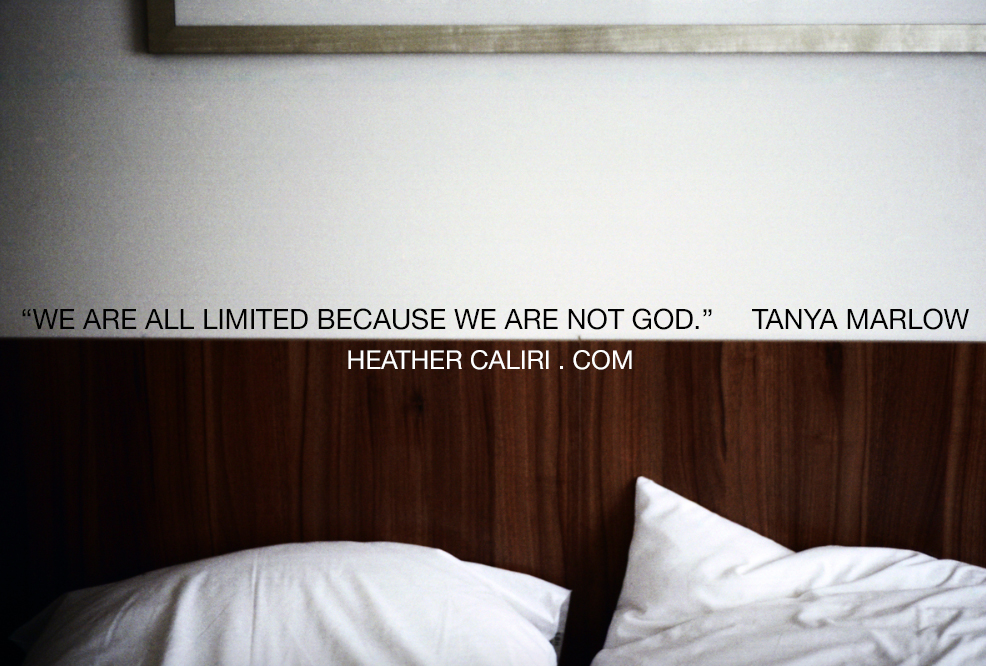




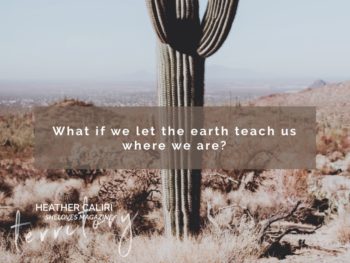
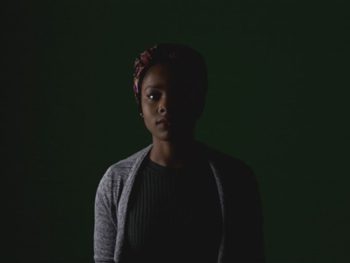

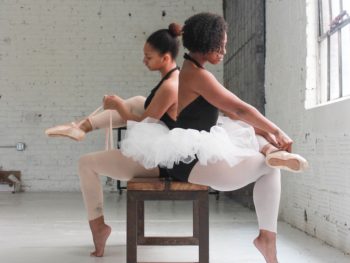
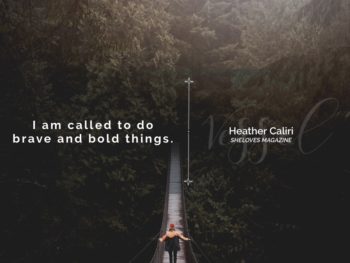


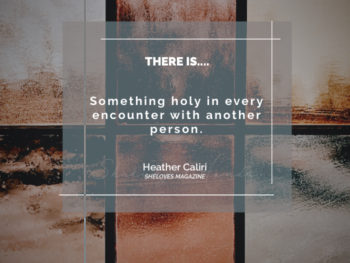
 Easy faith is Jesus-powered
Easy faith is Jesus-powered
Tanya and Heather,
I mourn and marvel at you Tanya. I mourn for that which you have lost and that which you can not do like you wish but I marvel at all you do within the bounds of that loss. I guess I am one of those international people that would not have known you but for your struggles that lead to your writing which I adore. I know I would be less not having gotten to know you.
You are a warrior and one who has made tremendous impact by letting us see you in your vulnerability which often times to me seems to be an amazing strength. We are all poor judges of the impact of our actions upon others. Yours is great indeed. We do not determine results but we are responsible to do that which we believe we should do even it is only to start things and not necessarily finish them or even just to start a conversation or even just to make people think.
We all need to remember that if we are only called to impact one person we should be honored to do that which God has called. At the same time impacting one person can lead to a cascade effect of reaching 1000’s.
Tanya Marlow… The Warrior ….. You Rock!
“We all need to remember that if we are only called to impact one person we should be honored to do that which God has called. ” Yes. It’s always an honor to love others on a very small scale. Our limitations often limit our ego more than our love 🙂
Hi Tanya,
I’ve already started reading your blog. Great to read this article here too. Hi Heather, It was a great decision to have Tanya blog over here. I really appreciated reading more of her story. I appreciate the fact that you don’t deny either the pain or the challenges or the things that we can still learn in the midst of them. Somehow, it’s about finding the balance in the midst of those seemingly irreconcilable extremes. I believe that it is possible to acknowledge both and it’s wonderful to read testimony from someone else who’s also found that. Thank you so much for sharing your story, Rachel
I agree, Rachel–I think Tanya does a really good job of walking that line. It’s too easy to force cheerfulness and say, “I rejoice in my suffering!” I mean, _awesome_ if we can get there authentically, but we can’t will those results.
There is a cure for M.E. now. In May 2011 a professor and a consultant from the University Hospital in Bergen, Norway presented to a conference in London some of their findings regarding this very debilitating illness, which I suffered with for a good seven years, in the 80s, when it didn’t even have a name and doctors regarded it as psychosomatic. It was very frustrating being pummelled from all sides by people who thought I was being a hypochondriac. However, these two medical men told of a young man who presented with both leukaemia and M.E. They were trying out a new medication for leukaemia, and found that his M.E. symptoms disappeared. They did a small placebo study and found that this drug indeed helps M.E. patients. Studies have been done in both the UK and USA now, but so far, I’m not sure general practitioners even know about it – many still prefer to believe it is a psychosomatic illness, because it suits them to think so. I just hope M/.E, will be regarded for what it is, and people suffering with it given the medication that will give them their lives back.
Wow, that’s really intriguing. I hope that it provides relief for a lot of people. I think my takeaway is that it’s always a lot easier to find healing and solutions if we first admit reality and stop gas-lighting people who are suffering. That goes for ME and everything else.
Yes…certainly the M.E. Association in the UK know about this, but getting the information out to the medical doctors is like trying to penetrate an iron curtain. So many of them seem to think all they need to know about the human body was learnt in medical school, and no other learning is necessary! This may sound a bit arrogant on my part, but I’ve worked in hospitals in the UK (for doctors) and I was surprised at how little they really knew. And I’m not joking – blinkeredness and bigheadedness needs to be removed first, without doing this doctors only see part of the picture – persons suffering much pain and discomfort that at best they can only speak kind words to, saying they don’t understand the symptoms, or, at worst, dismiss them as hypochondriacs seeking attention! I have known both as I was ill with M.E. myself. Fortunately I have a praying husband who saw me trough it – without his faith and help I don’t think I’d be here today, as unspeakable thoughts entered my mind several times.
I’m glad you’ve found support in your husband. it’s so important to have support when Experts are questioning your sanity.
Unfortunately I can very much believe that doctors can know little about stuff they should keep abreast of–having done a home birth, and then talked to pediatricians about nursing, I’m amazed at how obstetrics/pediatrics ignore or are not aware of evidence-based care when it comes to labor/delivery and nursing. I celebrate women making their own choices about, say, epidurals or formula feeding, but if women want to choose natural births or breastfeeding, they should be supported too. And often, traditional doctors just aren’t informed enough to support them adequately.
I think it’s not a coincidence that ME was more associated with women at first, and thus taken less seriously. There’s a LONG history of women not being listened to by medical professionals.
Okay, that was a big detour from the original topic. Basically, I’m glad you’ve found effective treatments, and that you refused to be not taken seriously. 🙂